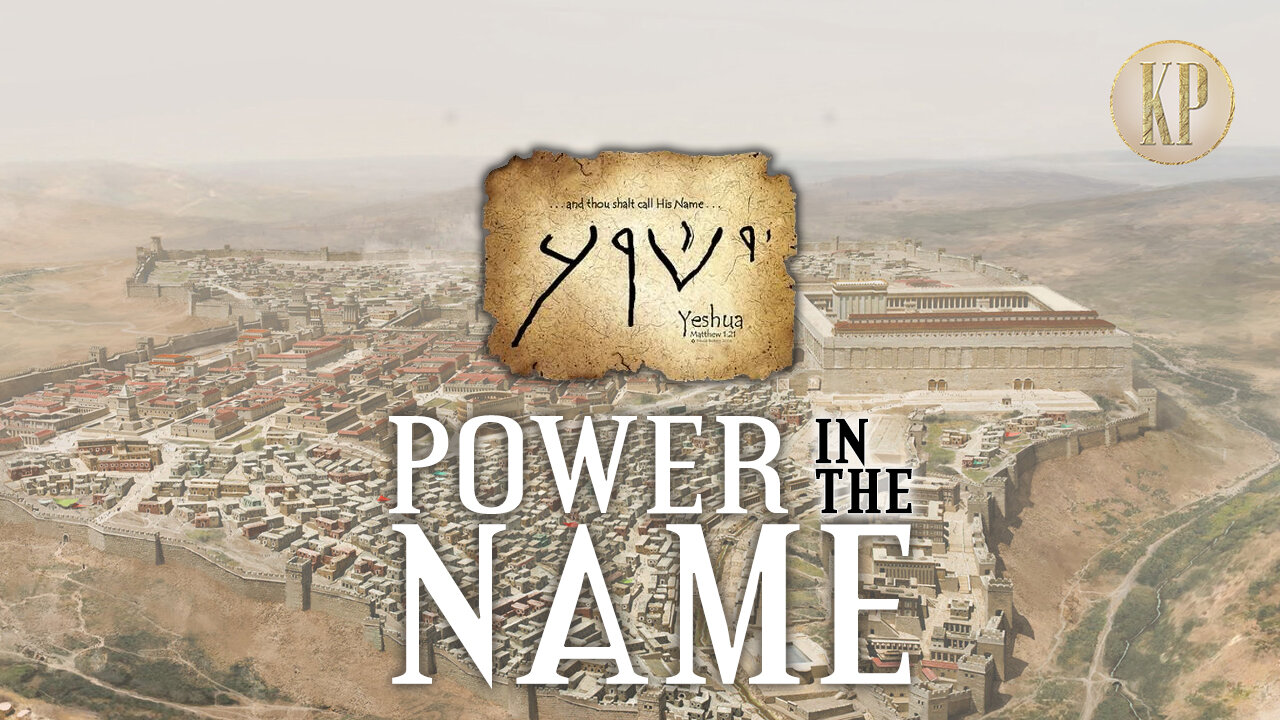A passage in the scrolls of the prophet Isaiah reads:
[16] Therefore, this is what the Sovereign Yah says: “Look! I am placing a foundation stone in Jerusalem, a firm and tested stone. It is a precious cornerstone that is safe to build on. Whoever believes need never be shaken.
—Isaiah 28:16
This prophecy correlates to a psalm that was later quoted by the Messiah himself:
[22] The stone that the builders rejected has now become the cornerstone.
—Psalm 118:22
One day, while Yeshua was teaching the Good News of the Kingdom in the temple, the temple priests and various Israelite leaders and elders confronted him and challenged his authority. He turned to the crowd and told the story of the evil farmers, which is recorded in Matthew 21, Mark 12, and Luke 20. In closing, he quoted the verse from Psalm 118 above, subtly demonstrating his authority through the prophetic fulfillment of the cornerstone in his person.
The emissaries, who were disciples then, were also in attendance. Some time later, when Peter and John had been empowered to proclaim the same Good News, and to heal, they too were confronted and the next day brought before a council comprised of Israelite leaders, elders, and this time the high priest. As with Yeshua, the authority by which these men acted was brought into question, as the council demanded:
[7] “. . . By what power, or in whose name, have you done this?”
—Acts 4:7
Filled with the Set Apart Spirit, Peter explains the power behind his ability to heal, and with far less subtlety than that employed by Yeshua, he fires off direct language that clearly marks Yeshua as the one behind his power. Then he points to Yeshua as the true representation of the cornerstone by drawing upon the same passage from the same psalm that Yeshua quoted from when he was on earth:
[11] "The stone that you builders rejected has now become the cornerstone."
—Acts 4:11
Then Peter closes by stating:
[12] There is salvation in no one else! Elohim has given no other name under heaven by which we must be saved.
—Acts 4:12
That name, it goes without saying, is therefore of extreme importance in the lives of the servants of Yah, who also accept the Messiah and his great sacrifice. There has been much controversy and contention over the name, and we at Kingdom Preppers certainly do not intend to add to that mix, yet we must state our reason for the names we use to refer to the Redeemer, hopefully to the benefit of others.
The Messiah's name is derived from names seen in the Torah, Writings, and Prophets. In Numbers 13:16 we see that Moshe gave the man called Husha [(or what they translate to "Hoshea") הוֹשֵׁ֥עַ (Heh, Waw, Shin, Ayin, or HUSHA)] the name Yahusha .יְהוֹשֻֽׁעַ (or YHUSHA). In other words, Moses put a "Yod" or "Y" in front of Husha's name, making it "Yahusha," which means, "Yah is my deliverance" or "salvation." This is what many Israelites and Gentiles call the Messiah today, but there is no evidence that the Messiah was ever called by this name according to all known records. Other Hebrews and Gentiles use the spellings: "Yahshua," "Yahawashi," or "Yashaya," for which there are no historical records of any kind, but even these are better than pagan titles in my view.
Now, Joshua's Hebrew name also had another spelling. It is only found in two verses in all of modern Scripture: Deuteronomy 3:21 and Judges 2:7.
Go to this link: https://biblehub.com/interlinear/deuteronomy/3-21.htm and, reading from right to left you'll see that it is the second word: יְהוֹשׁ֣וּעַ (Pictured above.)
Note that it is spelled Yod Heh Waw Shin Waw Ayin, or YHUSHUA, (i.e., "Yahushua"). In other words, an extra Waw (or "U") is inserted within the closing Sha, making it ShUa. It was common in Hebrew culture to use variant spellings for names, but the longer form of name spellings often meant that it was in longer use, and was thus older. Newer spellings resulted from shifts in the language and the elimination of extra characters. It is sort of like how we shorten names in English: Robert becomes Bobby, or Rob, and other like examples. "Yahushua," therefore, is the more formal and acceptable form of the Hebrew name for the Messiah. And some even argue that the YHUSHA spelling with the missing second Waw is still pronounced Yahushua. However, at the time when the Messiah was born, the people spoke Aramaic. They also wrote in that language. Since the Babylonian captivity, the people spoke and wrote Aramaic. Part of the Ezra scroll, for instance, was written in that language. So, with respect, we refer to the Messiah by his full, long Hebrew name Yahushua, but we also refer to him by the name he was actually called, "Yeshua," which is the Aramaic shortened form of "Yahushua," and carries a slightly different meaning, for a good reason.
Yeshua, in Hebrew, is written: יֵשׁ֔וּעַ or YSHUA. Now, there are two separate entries for the name Yeshua in the concordance, words H3442 and H3443, even though they carry the same exact spelling. There is a very important reason for this also: one is from a Hebrew source, the other from an Aramaic one. The second entry even references the Aramaic, or Chaldean origin. Now, back to the meaning of the name Yeshua. As I said, the sense is a bit different from the Hebrew Yahushua.
The word origin for Yeshua is listed as H7669, but that has an even older word origin, which is one word before it in the concordance, word H7668, also spelled Shin Waw Ayin, or "shua." The first sense Brown-Driver-Briggs offers is that it is akin to the Hebrew word for deliver. So this is close to what Yahushua means, only it does not include Yah's name. Yeshua himself is our deliverance, and it is noted that the long form of his name is Yahushua, so the father's name is in his name in Hebrew. We also know that he went by Yah Elohim (Jr.) before he took on human form (see our article “Yah” the Father, “Yah” the Son).
At any rate, Brown-Driver-Briggs gives us another sense for "shua," and this one usually trips people up, forcing them to scramble for excuses as to why it is incorrect and shouldn't be considered, among other things. But "shua," as it is used in Job 30:24, means: "cry for help." To cry for deliverance, in other words, which only Yeshua himself can bring. The name came into popular use during the Babylonian captivity (Ezra 2:36). Why? Because the people cried out for deliverance from that 70-year captivity. The same way we should be crying out for deliverance from this spiritual one.
And if you remember the Feast of Trumpets section in The Pure Convocations video, the blowing of trumpets really represents our unified voices, which should be crying out for deliverance, as we so often did as an ancient people, and were heard by Yah, who then acted on our behalf. So, this is why we use the name forms Yahushua and Yeshua. And the third video in our Covenant Law of Yah series explains our use of the name Yah when referring to the Most High. With that, we can address the question posed in Proverbs 30:4,
[4] . . . What is his name, and what is his son’s name? Surely you know!
—Proverbs 30:4
May his deliverance come soon!
Other Articles You Might be Interested In
Feedback Form
Related Videos
TESTIMONIALS
Thank you, KP, for taking the time to research the lexicons and correlate all your evidence with scriptural backing. I love when the scripture is proven to be so iron clad and impenetrable! I did not realize the last part of the Messiah's name meant "deliverer". Yah's wisdom is certainly amazing.
—Katie B.








